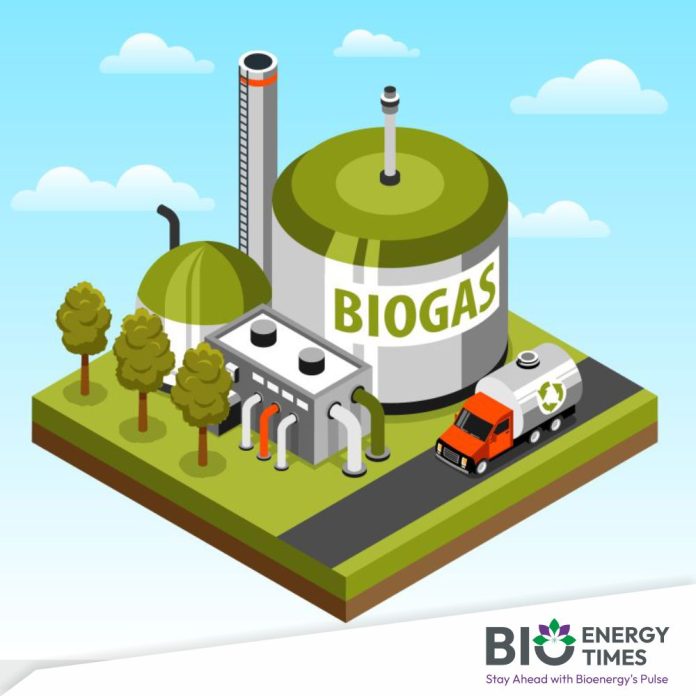As Bharat is facing multiple challenges like increasing Farm income, loss of foreign exchange in LNG import, rural employment generation, organic manure and increase of Carbon footprint. Compressed Bio Gas (CBG) has solution of all mentioned above problem.
CBG can be made from multiple feedstocks like Dairy waste, Sugarcane press mud, Husk, Napier grass, crop residues, Municipal waste comprises solid waste, Sewage water, Industrial wastes. The Organic waste is decomposed without presence of oxygen (Anaerobic reaction) first it formed Acetic Acid later it is converted to Methane (CH4) & Carbon dioxide (CO2) mainly. It is first decomposed in Digester subsequently Carbon dioxide & Hydrogen sulphide is removed from it. Methane composition is around 50-75 %, carbon dioxide 25-50% and some hydrogen sulphide (H2S). CBG is compressed and bottled in cascade of Storage cylinders then Transported to CNG Pump station. Its by products are organic Carbon dioxide & Sulphur, having extensive uses in Industries. Now LNG Vehicles are introduced, CBG can be converted into LNG.
Presently many Farmers have no choice but to dump their dairy & farm wastes. These waste properly diverted to CBG Plants there income and rural economy will increase dynamically. CBG plants will generate employment in gathering feedstock, production and maintenance process, supply chain. In city Municipal Corporation should segregate organic waste & household waste water to produce CBG, it should be made mandatory to implement CBG plant. It will beneficial in two ways firstly waste management and income generation of Municipal bodies. Its By -product organic fertilizer comprises of organic carbon, potassium, nitrogen, phosphorus etc. in the percentage of 40.21, 11.77, 0.33, 0.71 and 0.43 respectively. It improves soil texture, enhance water holding capacity of soil, increase carbon content of soil and increase Fungal and Bacteria activity inside the soil. Our dependence on imported and heavily subsidized Fertilizer will be reduced. Bio Fertilizer will generate extra cash flow to the CBG plants.
Our commitment for reduction of Green house Gas (GHG) emission will strengthen under United Nations Framework Convention on Climate Change’s (UNFCCC) Kyoto Protocol in 1997 by implementation of CBG. By reduction of GHG gases will earn Carbon Credits points. One carbon credit represents the reduction, removal, or avoidance of one metric tonne of carbon dioxide (CO2) or its equivalent in greenhouse gas emissions. By selling Carbon credit CBG Plants will be self sustained. Government has taken various steps to enhance to set up of CBG Plants. Oil PSUs & Ministry of Petroleum and Natural Gas initiated SATAT scheme comprises single window for LOI with Oil Companies to off-take and market the CBG produced. Gobardhan scheme launched by Ministry of Jal shakti Dept. integrating all schemes related to CBG. Ministry of Renewable is providing Central Financial Assistance (CFA) as per plant capacity. Ministry of Fertilizer providing financial assistance on Fermented organic Manure. Various state Government facilitate by providing Capital subsidy, exemption on stamp duty on the purchase of land. CBG will be game changer and win-win situation for all.
Alok Kumar Singh is a mechanical engineer with over 19 years of experience in petrochemicals, fertilizers, refineries, and effluent treatment plants (ETPs).














